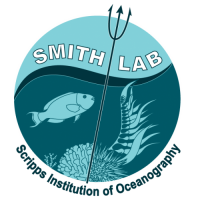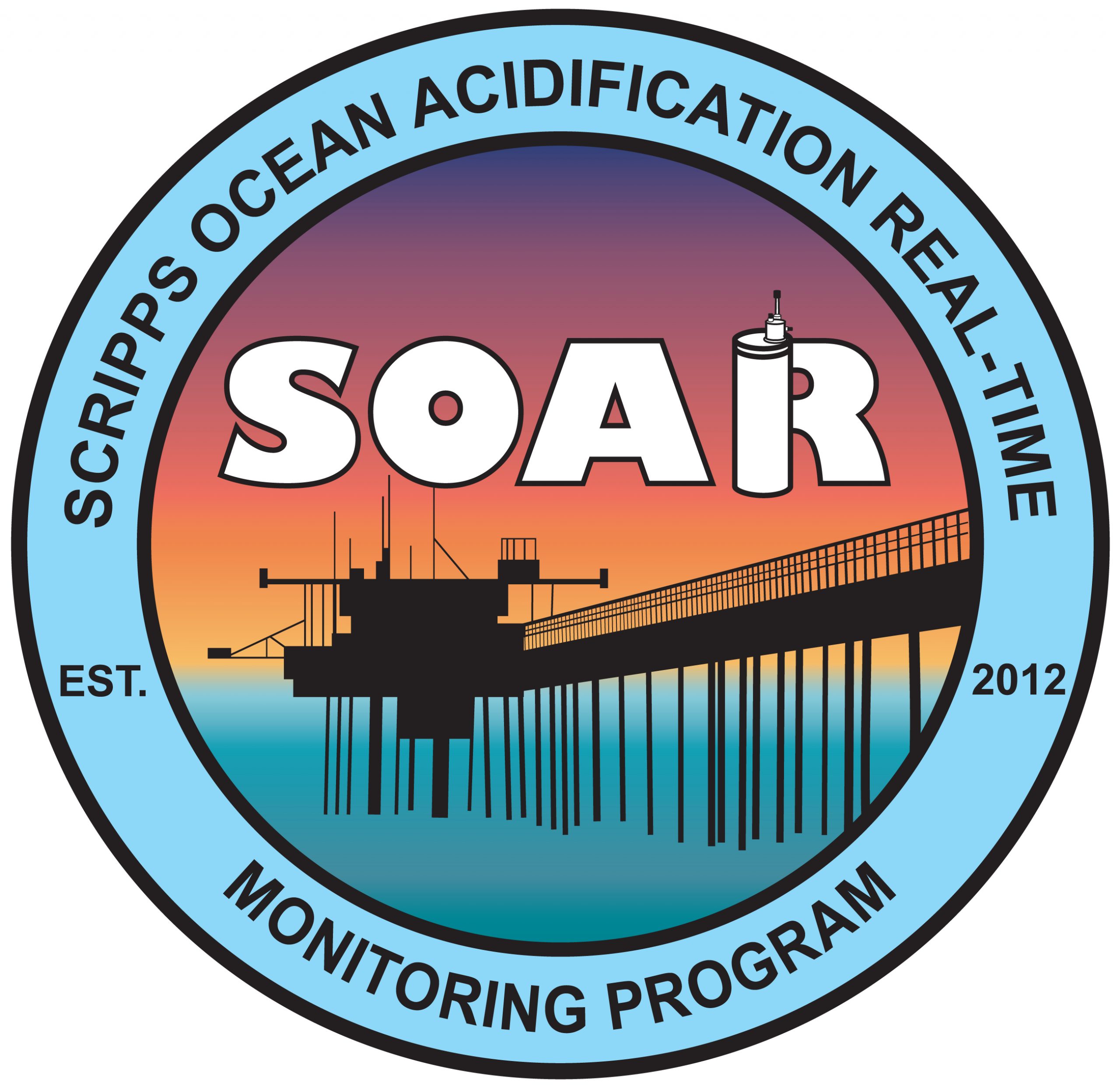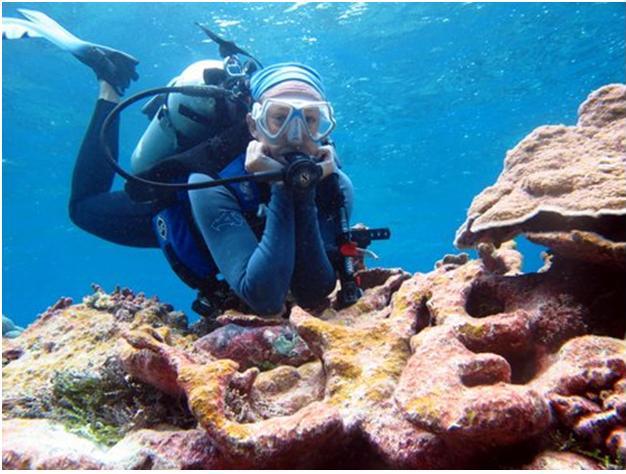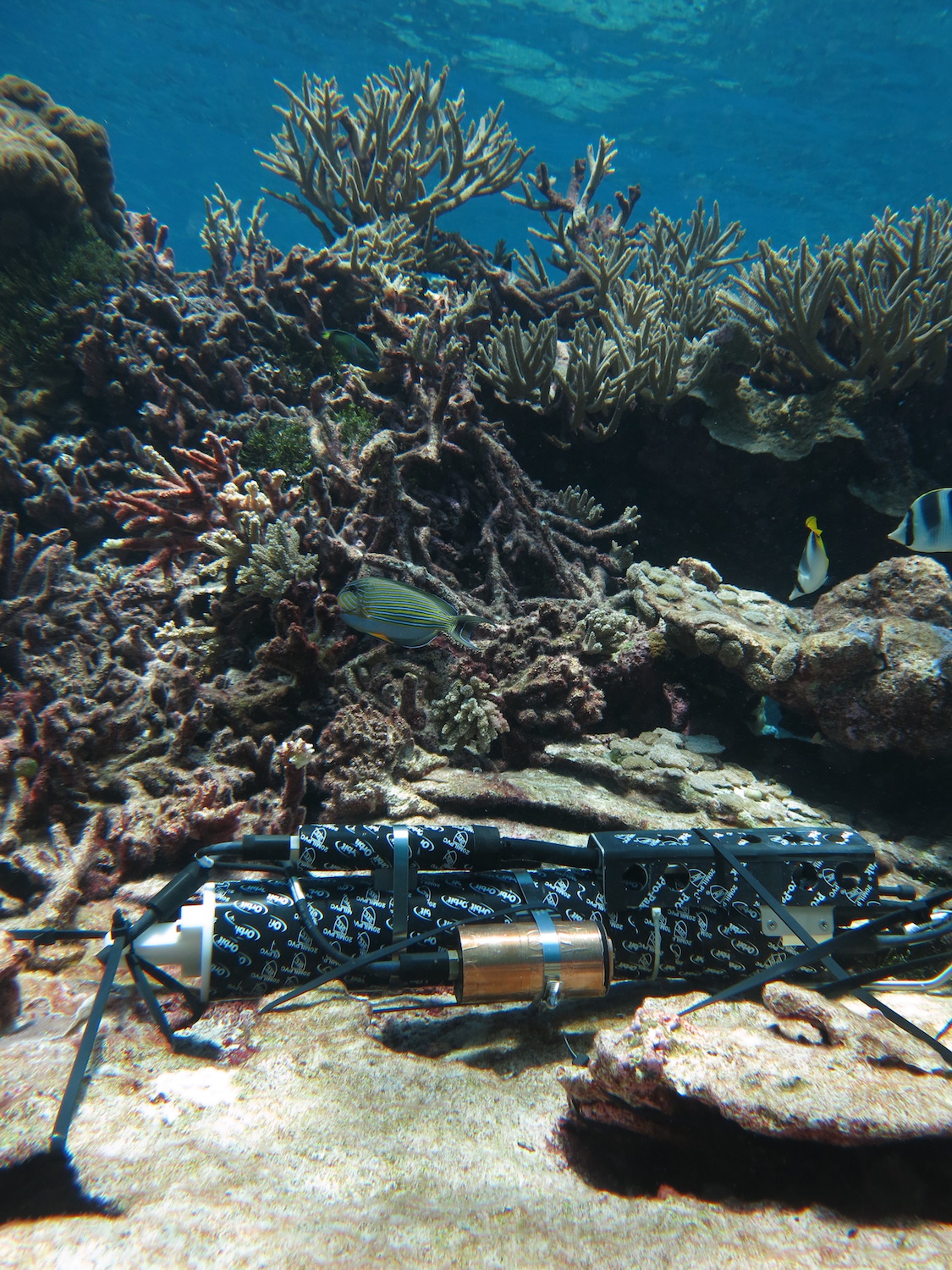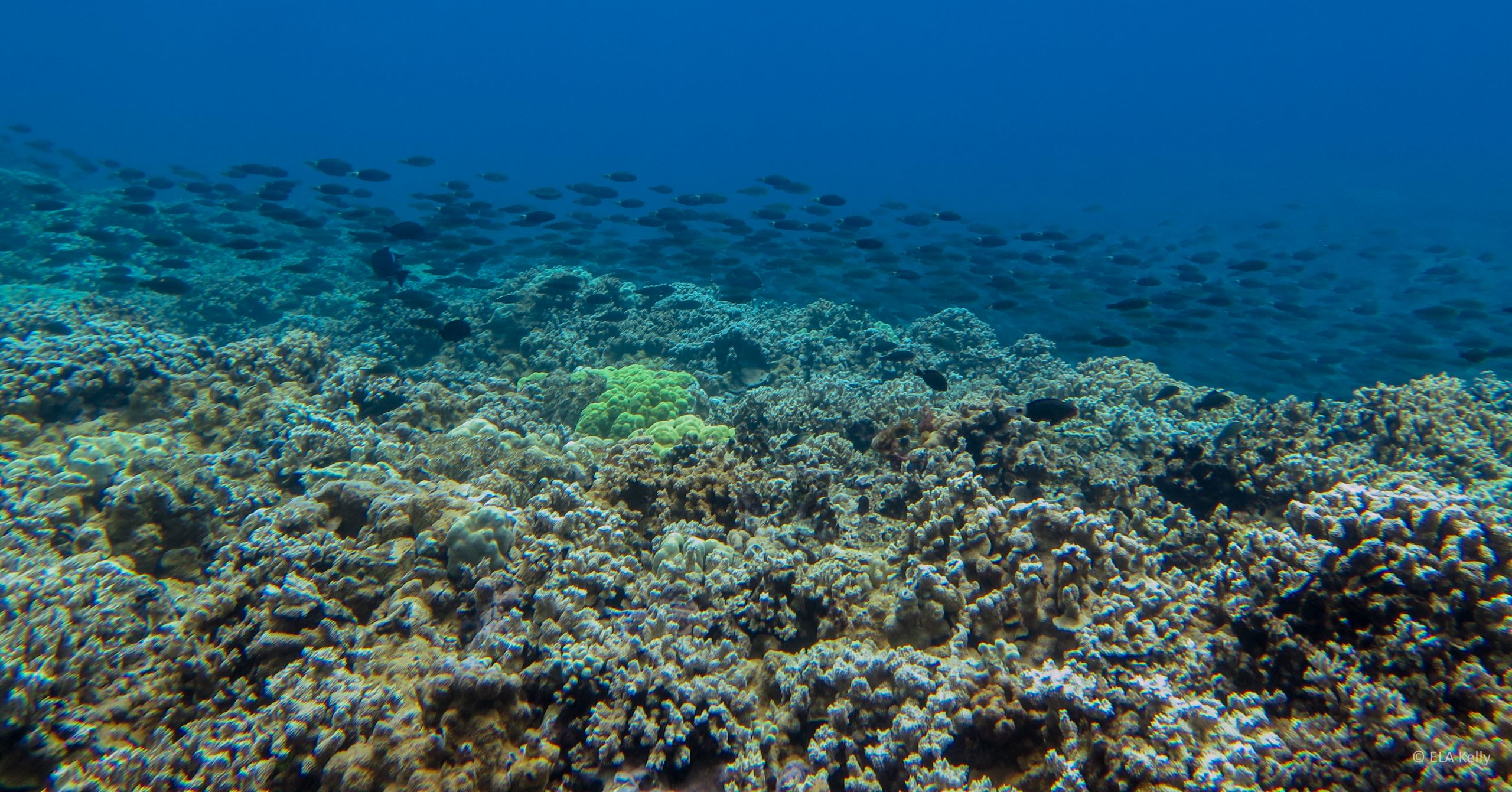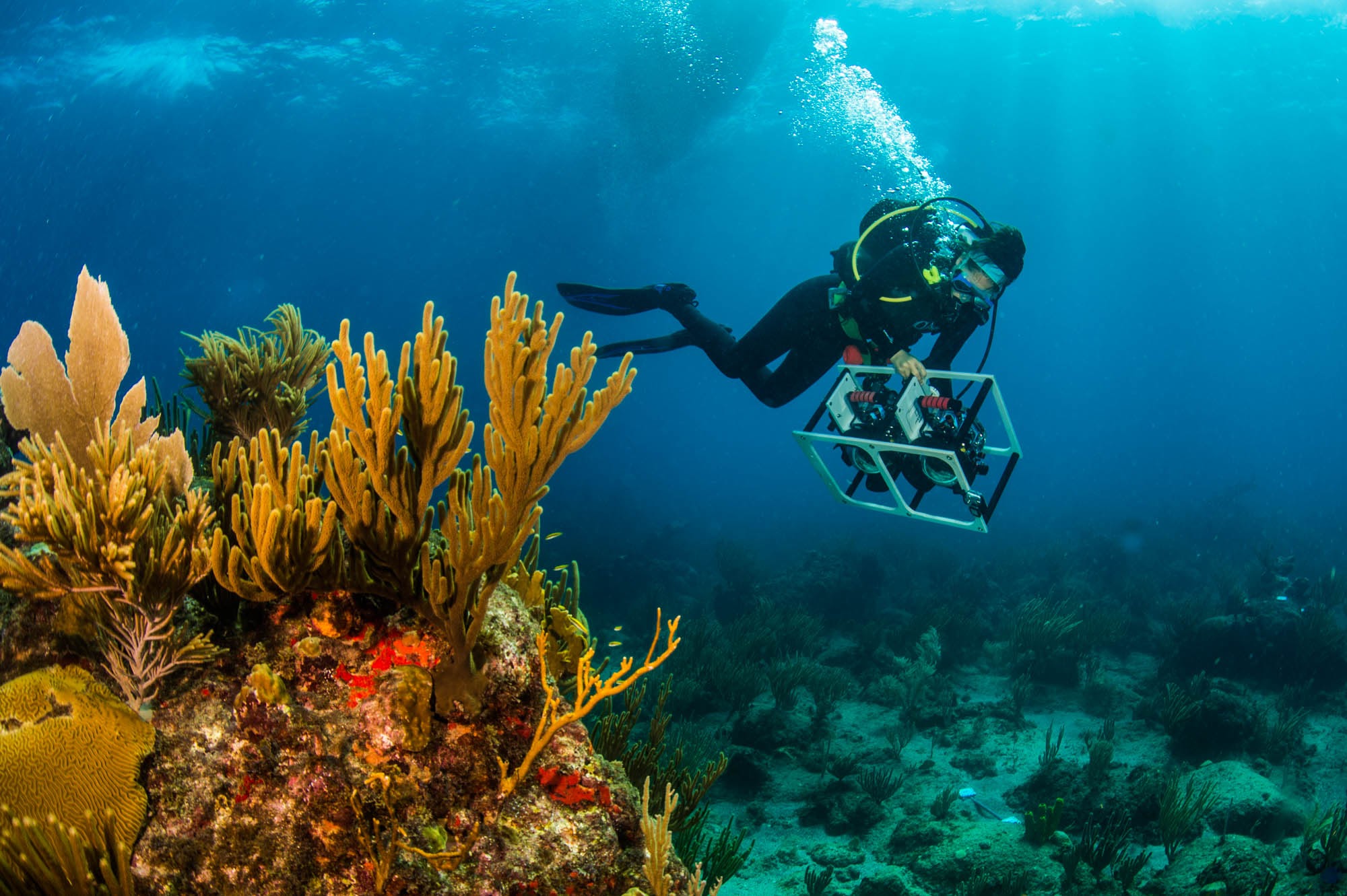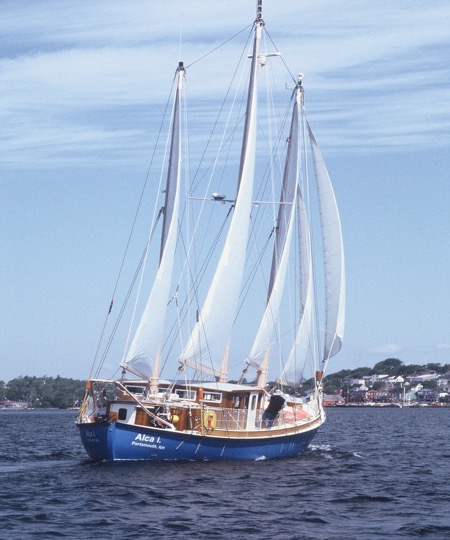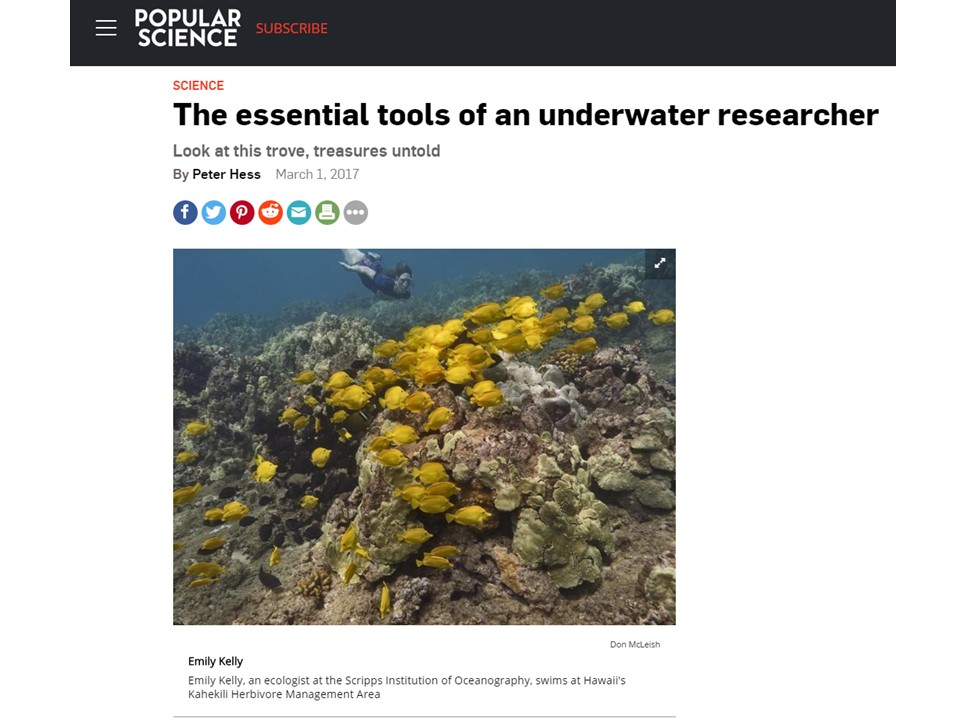Aloha! Our lab just got back from our annual field work trip to Maui, and we have a lot to report! We’ve been visiting Maui for over a decade to monitor coral reefs along the island’s leeward (sheltered from the wind) coast. We return to the same sites year after year and take thousands of pictures of each reef. When … Read More
SOAR Spring 2020 Report: Red Tide Edition
If you’re a resident of Southern California (and maybe even if you’re not) you likely heard about the recent red tide bloom (and subsequent smelly fish and invertebrate die-offs) that saturated the coastline of Southern California. Here at Scripps Oceanography, it was the main topic of conversation to break the monotony of COVID-19 information and pandemic updates. For those of us … Read More
100 Island Challenge featured by BBC Earth
100IC team featured in bioGraphic while on expedition in the Cook Islands
Researchers from the 100 Island Challenge team were interviewed for a piece in bioGraphic in January on an expedition to Rarotonga in the Cook Islands. The article, “Picture of Health,” published online last week, details the daily life of researchers in the field and shares the team’s optimistic view of coral reef health in areas where local managers are making waves to … Read More
Smith Lab alum, Maggie Johnson, uses her field skills to learn more about Panama’s reefs
Smith Lab Ph.D. alum, Dr. Maggie Johnson, was recently featured in the latest issue of Trópicos for her work studying coral reefs of Panama as part of her postdoctoral research with the Smithsonian Tropical Research Institute. Check out this YouTube video featuring Maggie’s postdoctoral work in Bocas del Toro, where she uses field techniques she learned in the Smith Lab to … Read More
Collaboration in the news: Smith Lab assists US Fish and Wildlife Service with water quality monitoring at Palmyra Atoll
On a recent trip to Palmyra Atoll, members of the Smith Lab assisted US Fish and Wildlife Service (USFWS) with the deployment of a nearshore water quality sensor. The sensor, a Sea-Bird Electronics 16plus V2 SeaCAT Recorder with integrated WET Labs ECO-FLNTUS (say that 10 times fast!), is part of the Pacific Islands Ocean Observing System’s (PacIOOS) Water Quality Sensor … Read More
Herbivore management may be the key to balancing the energetic budget on coral reefs
A new paper published by Emily Kelly and colleagues explains how we can balance the energetic budget on Hawaiian coral reefs through herbivore management and protection. Herbivores on coral reefs play an important role in controlling algal growth, but in systems where density of herbivores is low, algae can grow at a faster rate than they are consumed, resulting in a … Read More
Curious about the “100 Island Challenge”? Check out this article to learn more!
The 100 Island Challenge is a collaborative project led by Dr. Stuart Sandin’s lab, co-led by Dr. Jen Smith, that aims to work with partners worldwide to assess reef health in a holistic way that is comparable across all sites. News Deeply recently interviewed Dr. Smith to learn more about the goals of the 100 Island Challenge in assessing reef … Read More
Citizen-supported science in the Gulf of Maine
Dr. Walter Adey has dedicated his career to studying the importance of seaweeds in the marine ecosystems of the Northwest Atlantic. Walter first surveyed the benthic communities of the Gulf of Maine fifty years ago. In the wake of the collapse of the famed New England cod fishery and half a century of climate change, the Gulf of Maine is … Read More
Ever wondered about the coral reef ecologist’s tools of the trade?
Popular Science recently interviewed Dr. Emily Kelly about the essential tools of an underwater researcher, including waterproof paper, coolers, and even surgical equipment. Click here to read more!
- Page 1 of 2
- 1
- 2

